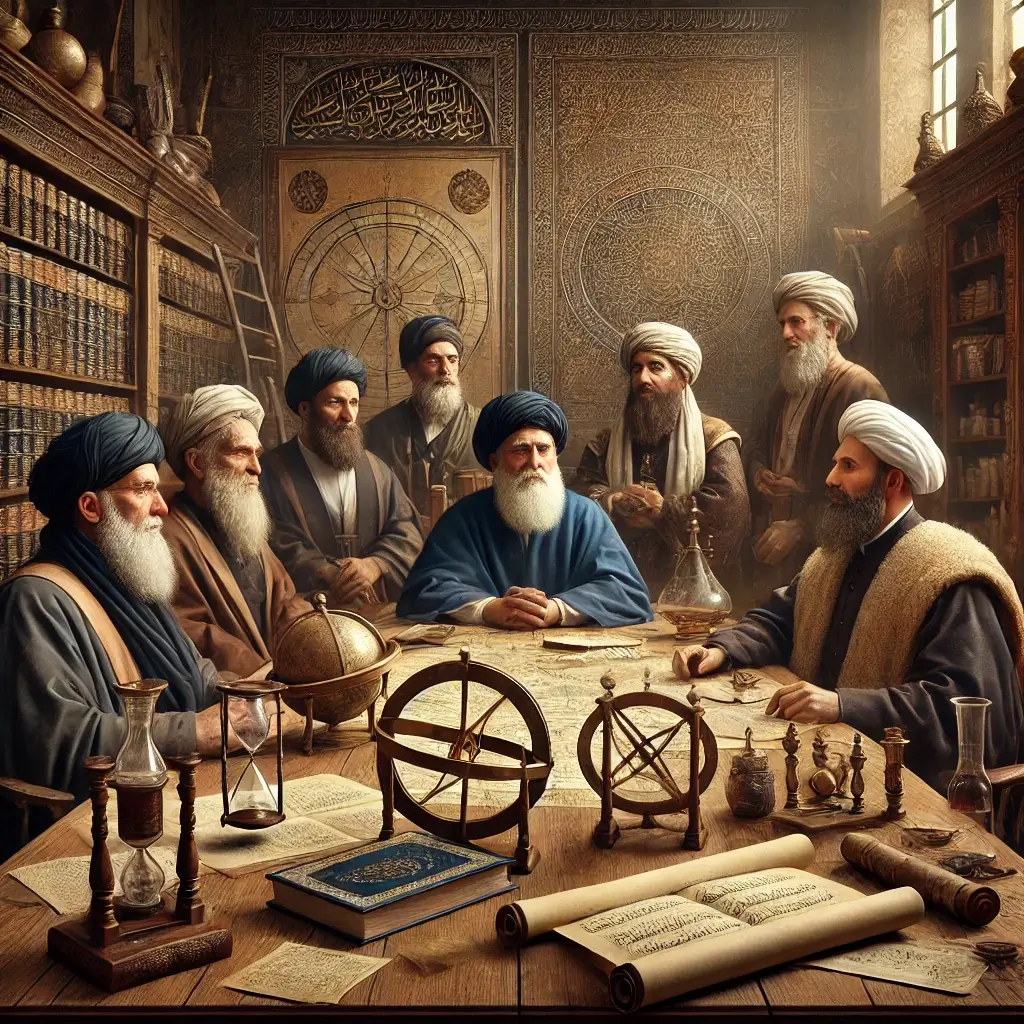
7 Influential Arab Scientists Who Shaped History
The rich history of Arab civilization was shaped by scientists and scholars who made groundbreaking discoveries across many fields.
In this blog, we look at the lives and achievements of seven remarkable Arab scientists: Ibn Rushd (Averroes), Jabir ibn Hayyan, Al-Farabi, Al-Idrisi, Al-Zahrawi, Al-Jahiz, and Al-Ghazali. Their lasting legacies continue to spark curiosity and learning worldwide.
Ibn Rushd
Ibn Rushd, known in the West as Averroes, was a prominent medieval scholar born in 1126 AD in Cordoba, Spain. Renowned for his interpretations of Aristotle, he significantly influenced both Islamic and Western philosophy. His key works include “Bidayat al-Mujtahid” in Islamic jurisprudence and “Kitab al-Kuliyat fi al-Tibb” in medicine. Serving as a judge in Seville, his legal decisions and scholarly contributions have had a lasting impact. Ibn Rushd passed away in 1198 AD in the Maghreb, and his intellectual legacy endures in philosophy, law, and medicine.
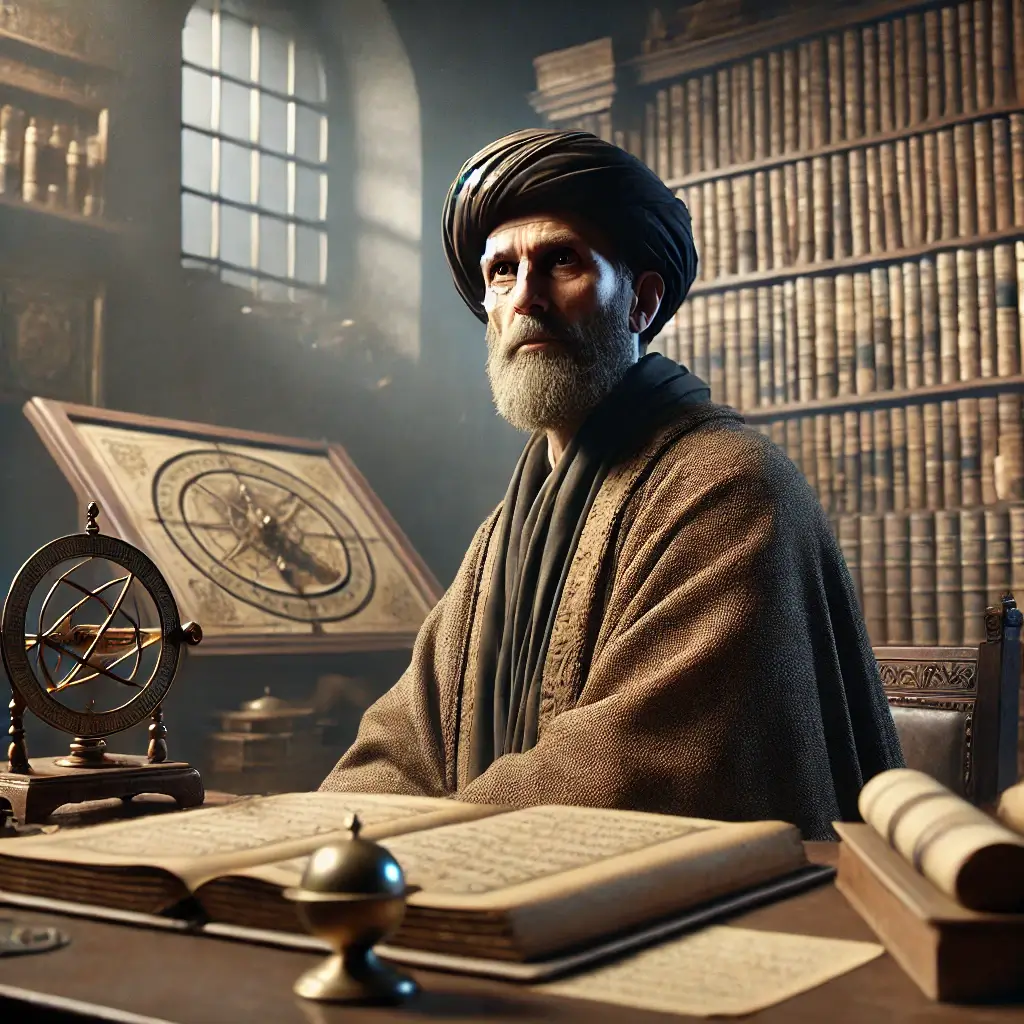
Ibn Hayyan
Jabir ibn Hayyan al-Azdi, often called the father of chemistry, was a pioneering polymath born around 721 AD in Persia. He is credited with numerous advancements in alchemy, including developing key laboratory techniques and apparatus. His extensive writings, covering topics from alchemy and pharmacology to astronomy, profoundly influenced medieval Islamic and European scientific thought. Jabir’s work laid the foundation for modern chemistry, and his methodologies are still recognized and appreciated in contemporary scientific practices.

Al-Jahiz
Abu Uthman Amr ibn Bahr, commonly known as Al-Jahiz, was a renowned writer and scholar born in 776 AD in Basra, Iraq. Famous for his work “Kitab al-Hayawan” (The Book of Animals), he significantly contributed to various fields, including biology, zoology, and literature. Al-Jahiz’s unique blend of humor, keen observation, and intellectual depth earned him a prominent place in Arabic literary tradition. His ideas on natural selection and the social behavior of animals reflect a sophisticated understanding of the natural world that predated many Western scientific discoveries.

Al-Ghazali
Muhammad ibn Muhammad al-Ghazali, born in 1058 AD in Tus, Persia, was a prominent theologian, jurist, philosopher, and mystic. His seminal work “Ihya Ulum al-Din” (The Revival of the Religious Sciences) is considered a cornerstone in Islamic thought, blending mysticism with orthodox Islamic teachings. Al-Ghazali’s critique of philosophy in “Tahafut al-Falasifa” (The Incoherence of the Philosophers) significantly influenced Islamic theology and prompted a reevaluation of the relationship between faith and reason. His works continue to inspire scholars and spiritual seekers in the Islamic world and beyond.
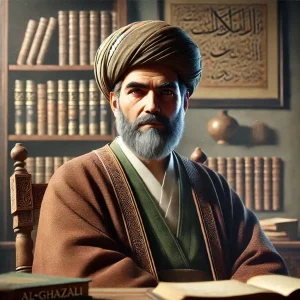
Al-Farabi
Al-Farabi was a renowned philosopher and polymath, born in 872 AD in Farab (modern-day Kazakhstan). He was known as the “Second Teacher” after Aristotle and significantly contributed to philosophy, logic, political theory, and music. His works, such as “Al-Madina al-Fadila” (The Virtuous City), explore the ideal state and the role of philosophy in achieving human perfection. Al-Farabi’s integration of Greek philosophy with Islamic thought profoundly influenced medieval intellectual traditions in both the Islamic world and Europe.
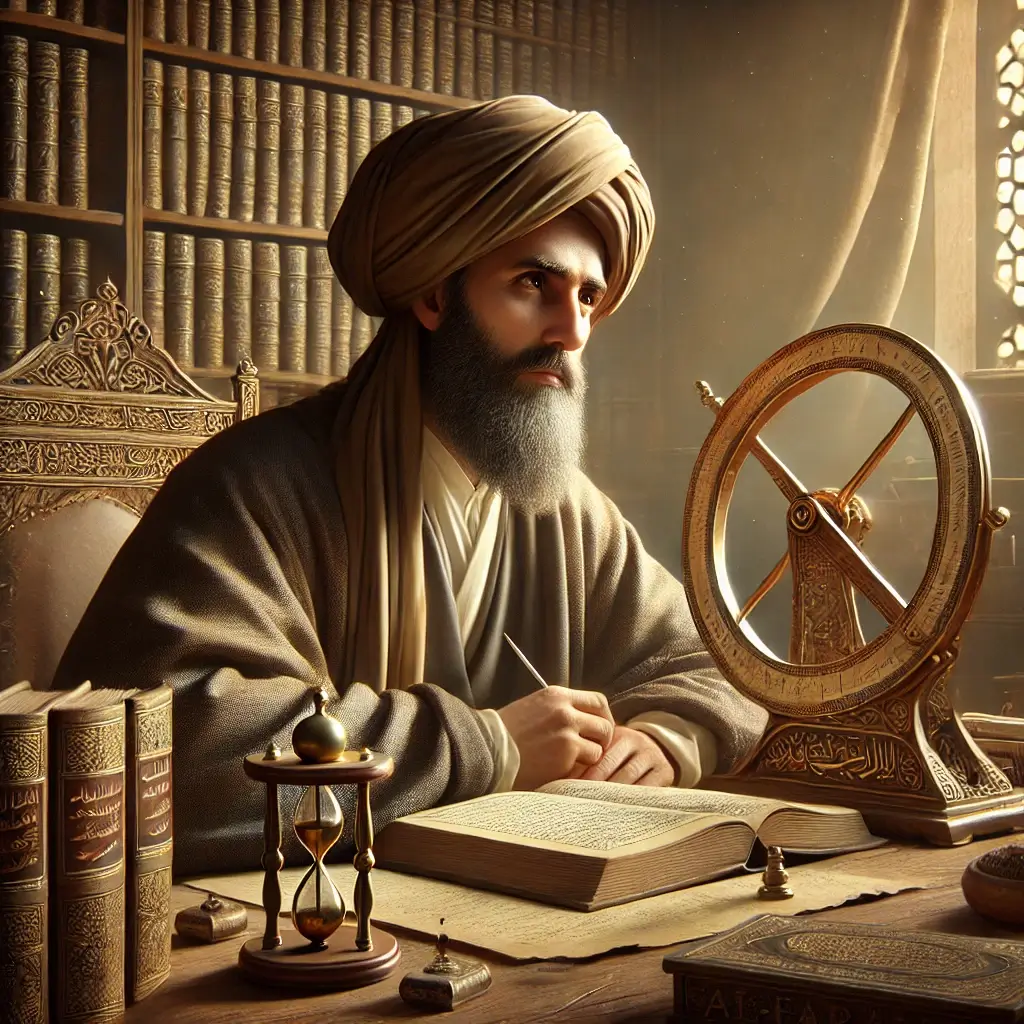
Al-Idrisi
Al-Idrisi, born in 1100 AD in Ceuta, was a distinguished geographer and cartographer. His most famous work, “Tabula Rogeriana,” created for King Roger II of Sicily, provided detailed maps and geographical information of the known world. Al-Idrisi’s contributions to geography and cartography were unparalleled in his time, blending classical knowledge with firsthand observations and reports. His work significantly advanced the understanding of geography in the Islamic world and medieval Europe.
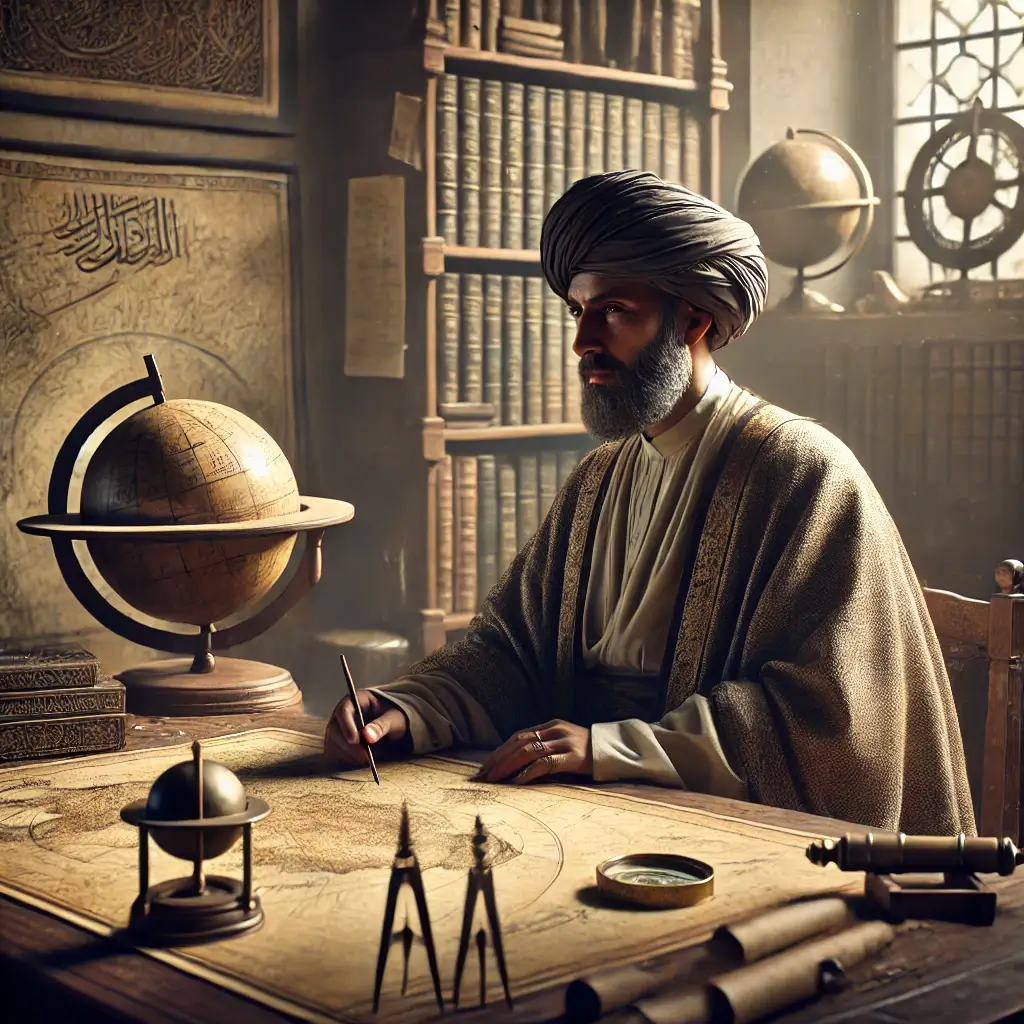
Al-Zahrawi
Al-Zahrawi, or Albucasis, was a pioneering surgeon and physician born in 936 AD in Al-Andalus (modern-day Spain). His comprehensive medical encyclopedia, “Kitab al-Tasrif,” covered various aspects of medical science and surgery, including innovative surgical instruments and techniques. Al-Zahrawi’s work laid the foundation for modern surgical practices and remained a key reference in European medical education for centuries. His contributions have cemented his legacy as one of the most influential figures in the history of medicine.
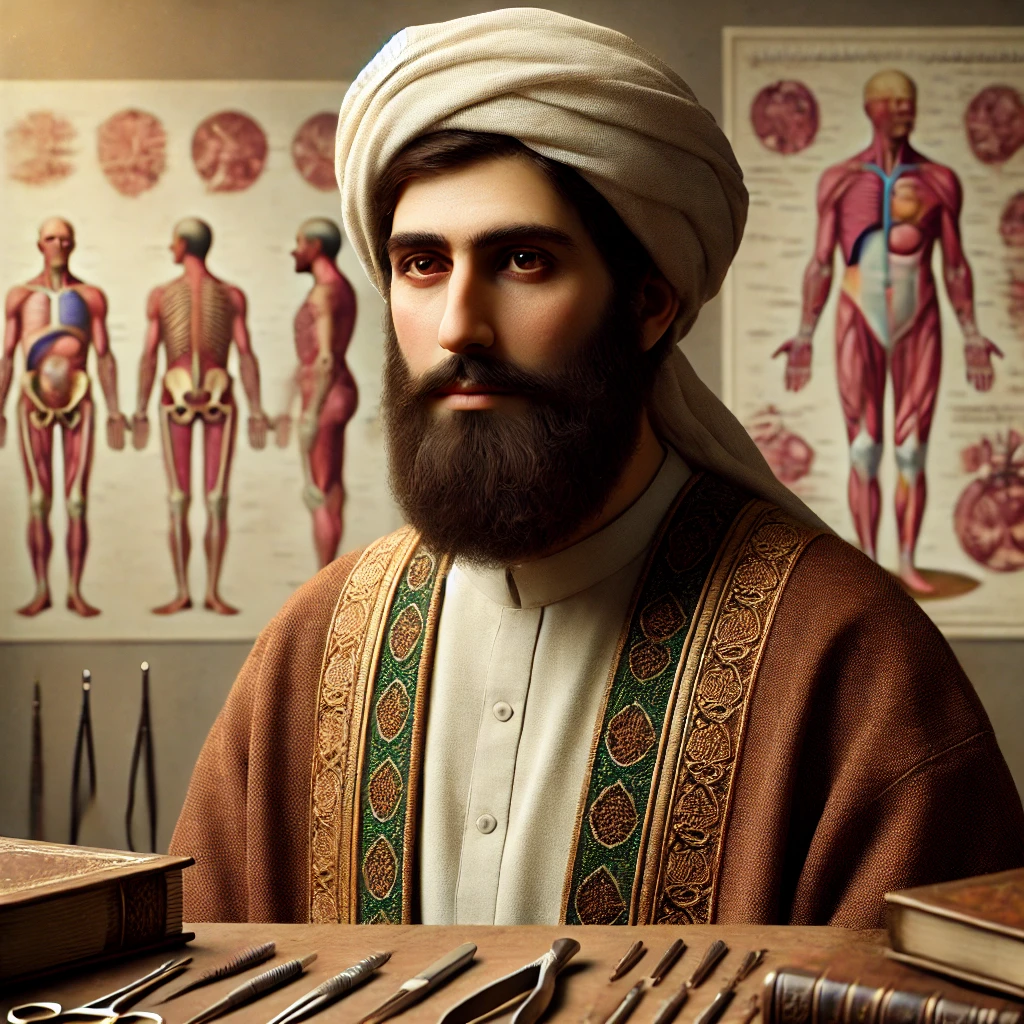
Final word
As you start exploring the Arabic language and culture, we invite you to reflect on the contributions of these seven Arab scientists.
Their work has bridged cultures and eras and laid the groundwork for many modern scientific and philosophical advancements. It inspired new generations of thinkers and innovators, reminding us of the profound impact of Arabic scholarship on the world.
Download our app to start learning Arabic and discover the roots of modern knowledge and sciences.





